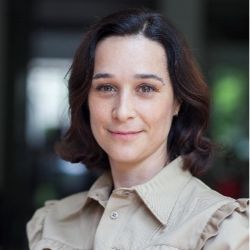On 26 April 2023, the European Commission published the long-awaited proposal for the revision of the EU Pharmaceutical legislation which also includes provisions on medicines for rare diseases and children. In light of this, we warmly welcome the proposal by the European Commission which addresses several areas of concern previously identified by the European childhood cancer community.
Each year in Europe, over 35,000 new cases of paediatric cancer are diagnosed and more than 6,000 children and young people die from cancer. The majority of the estimated 500,000 childhood cancer survivors in Europe experience a wide array of adverse long-term side-effects caused by the disease and treatment, and face barriers accessing appropriate follow-up care and full participation in society.
For these reasons, we, the European Society for Paediatric Oncology (SIOP Europe), the single united European organisation representing healthcare and research professionals in paediatric oncology, and Childhood Cancer International – Europe (CCI Europe), the only European patient organisation in paediatric cancer, have been involved in the review, analysis, and proposing of recommendations to improve access to treatment through EU Paediatric and Orphan Regulations since 2012. Over the last 15 years, only 16 anticancer medicines have been authorised for a specific paediatric cancer indication, in contrast to over 150 for adult cancers.
Given these facts, it is now absolutely crucial to take a decisive step forward for the benefit of children with cancer with a swift negotiation and adoption of the European Commission’s proposal. Together, we have analysed the proposal and would like to underline the areas that we believe should be upheld during the negotiation process as well as those where amendments can further strengthen the reform and ultimately the fate of patients with unmet medical needs such as young cancer patients.
"For this EU Pharmaceutical legislation to deliver for the childhood cancer patients we need a multistakeholder engagement with patients, academia, industry, regulatory and health technology assessment bodies and science-driven prioritisation to accelerate medicine development. We need to put the needs of children first and ensure access to medicines for this vulnerable population.”
Gilles Vassal, SIOP Europe Board Member
Under the current EU Paediatric Regulation, there is no obligation for a medicine developed by industry for an adult cancer to be further investigated in paediatrics if the disease does not exist in children. Hence, we are extremely pleased with the proposed introduction of paediatric medicine development based on the molecular target of a new medicine, which we have been calling for since 2012.
Among others, we commend the role of not-for-profit entities in drug repurposing and further introduction of the step-wise (initial) paediatric development plans which aim to accelerate and simplify paediatric medicine development. Additional data protection for the introduction of a new medicine in all Member States and provisions on medicine shortages and long-awaited Union of Critical Medicinal Products, are also a great step towards more equality across Europe.
We endorse the concepts of the Unmet Medical Need and High Unmet Medical Need as well as the introduction of multistakeholder involvement and medicine prioritisation as we are enthusiastic to be meaningfully engaged in these processes. A successful example would be the ACCELERATE Platform which has demonstrated great value and impact of the multistakeholder collaboration in the field of paediatric cancer medicine development to facilitate the prioritisation.
On the other hand, the current proposal does not include specific incentives for first-in-child development and first-in-child marketing authorisation of medicines. We strongly recommend including such incentives as this is expected to increase commercial interest in the development of medicines specific to paediatric cancers (and paediatric rare diseases). Furthermore, we call for programmes allocating public funds to research projects addressing Unmet Medical Needs in paediatric indications.
In conclusion, we welcome and support the European Commissions’ proposal for revision of the EU Pharmaceutical legislation for a more patient-centric and science-driven regulation. We believe the new legislation has the potential to facilitate the involvement of academia and patients in medicine development and ensure that patients’ needs are meaningfully considered, but we highlight important areas for clarification and improvements as well as the urgent need to move forward with the negotiations and adoption of the proposal.

“For this EU Pharmaceutical legislation to deliver for the childhood cancer patients we need a multistakeholder engagement with patients, academia, industry, regulatory and health technology assessment bodies and science-driven prioritisation to accelerate medicine development. We need to put the needs of children first and ensure access to medicines for this vulnerable population.” - Gilles Vassal, SIOP Europe Board Member

“When my 12-year-old son relapsed from cancer in 2015, he was offered old toxic off-label drugs to fight off his cancer. 7 years down the road the treatment options for his disease have not improved. Young patients need political backing and hands-on expertise to transform the EU Pharmaceutical legislation: only then will they have access to more on-label targeted drugs that are more efficient and less toxic for their growing bodies. We count on the European Parliament and all political groups to identify strong MEP Champions to lead on the EU Pharmaceutical legislation and help all children and adolescents with cancer in Europe". - Delphine Heenen, CCI Europe Committee Member
Read the full European Childhood Cancer Community statement on the EU pharmaceutical legislation here.
Sign up to The Parliament's weekly newsletter
Every Friday our editorial team goes behind the headlines to offer insight and analysis on the key stories driving the EU agenda. Subscribe for free here.